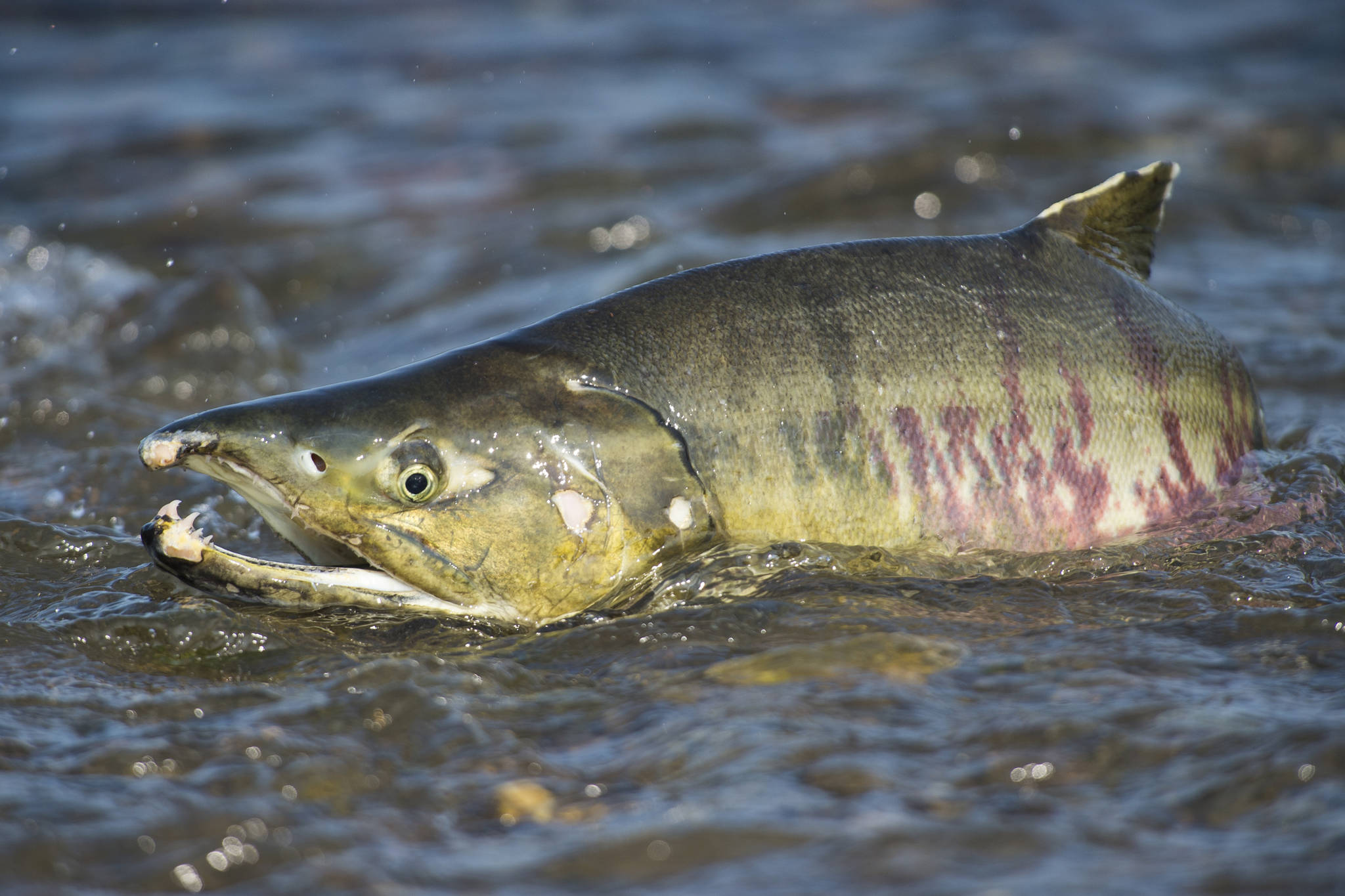Alaskans will vote on the Stand For Salmon initiative on Nov. 6. The opposition to this measure has used trickery, deception, exaggeration, and now outright falsehoods to confuse and mislead Alaskans.
If you can believe their line I have a great parcel of Florida swampland I’d like you to consider.
Does anyone out there really believe the passage of this initiative will shut down tourism, reduce our PFD, or force the state into bankruptcy?
That is what a former governor — a man who undercut habitat statutes every chance he could — would have you believe. Others opposing the initiative have stated that the trans-Alaska Oil Pipeline might be poorly maintained, and that the Dalton Highway (life gate to the North Slope) would not be repaired in a timely manner following a washout. All this is hogwash!
Ballot Measure 1 creates a two-tier process in which smaller projects that pose no significant impacts to fish habitat — such as road repair, culverts, bridges, or docks — receive very light review and will be handled similar to the way they are presently.
However, mega-projects like Pebble Mine, Donlin Mine and Chuitna Coal will rightfully be required to meet higher standards due to their potential harm to salmon habitat. Pebble mine development poses a huge risk to the greatest red salmon resource in the world in Bristol Bay. The Donlin gold mine project has potential to destroy miles of wetlands and streams in the Kuskokwim River watershed. The Chuitna coal project, currently inactive, but if permitted would remove over 14 miles of productive salmon stream on the west side of Cook Inlet.
Industry should not be allowed to proceed with these projects unless they can show that they will not destroy existing salmon habitat. Alaska has the greatest abundance of wild salmon in the world and these stocks need to be protected into the future.
Some say that ocean conditions may be responsible for declining salmon returns in some stocks in certain locations around the state. This may be true, but it’s nothing at this time we can control. Yet even so, that’s why it’s all the more important to protect salmon spawning and rearing habitat in our anadromous rivers and streams.
So why are these big corporations spending millions of dollars fighting this ballot measure which is designed to protect Alaska’s valuable salmon habitat?
Well yes, there may be a few more hoops to jump through and it may take a little longer to get project approval. And yes, that increased level of review will drive project costs up a little more. But is that not a price worth paying to ensure that projects are done right and that salmon habitat is protected now — and into the future? I think it is. This is too important an issue for Alaskan’s to allow themselves to be confused by the misinformation, unfounded speculation and fear-mongering by the opposition in their effort to defeat this important measure.
Please take the time to read the ballot measure and then listen to the concerns of your fellow citizens, the folks in the bush, commercial and sports fishermen, and the many fisheries and habitat biologists whose careers were spent monitoring the fisheries and their habitat. Some have borne witness to the destruction caused by poor development practices and recognize the need for this initiative which puts clear, science-based salmon habitat standards in statute and provides for a public process when major resource development decisions, with potential negative impacts on salmon habitat move forward.
If we are good stewards of the resource, salmon can be here long after the last barrel of oil, the last chunk of coal, and the last ounce of gold is taken from Alaska lands. But that assumption comes with a big “IF,” and that “IF” is whether Alaskans do their job now and ensure that salmon habitat is preserved and protected well into the future. Please vote with me on Nov. 6. Vote YES on Ballot Measure 1.
Loren Flagg is a retired Alaska Department of Fish and Game fisheries/habitat biologist who worked in both Kachemak Bay and on the Kenai and Kasilof River systems. Following his retirement from the state he guided for several years on the Kenai River and also served as a consultant for the Cook Inlet commercial fishing industry. He is the author of the book “Fish, Oil, and Follies.”

